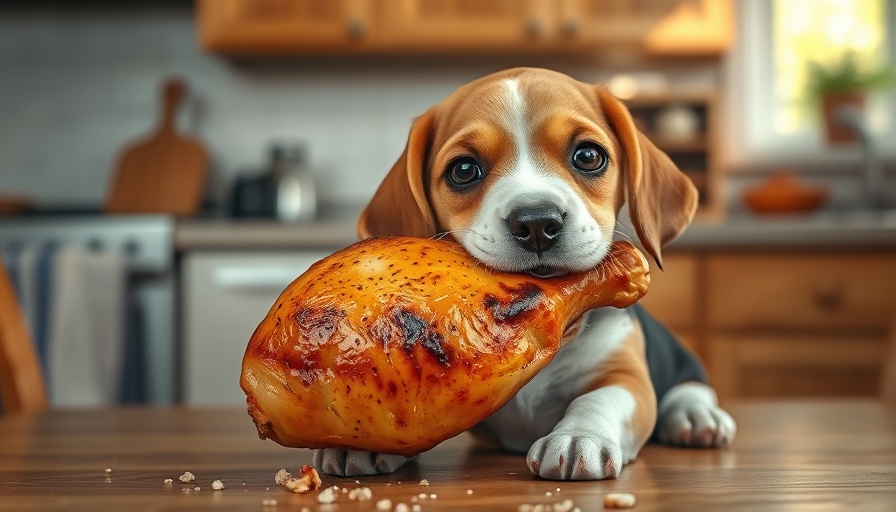
Can Dogs Enjoy Rotisserie Chicken Safely?
As a dog owner, you may find yourself tempted to share your meal—especially when rotisserie chicken is on the menu. The good news is that dogs can eat rotisserie chicken, but this treat comes with a caveat: preparation and moderation are key. Understanding how to safely include rotisserie chicken in your dog's diet is essential for their health and well-being.
The Nutritional Advantages of Rotisserie Chicken
Rotisserie chicken stands out for its high protein content, vital for muscle maintenance and energy. Beyond that, it delivers essential nutrients that can fortify your dog's health:
- High Protein Content: Dogs require protein for maintaining muscle mass and overall vitality. Rotisserie chicken is a tasty source of lean protein.
- Rich in Essential Nutrients: This delightful bird provides B vitamins, phosphorus, and selenium, crucial for immune function and bone health.
- Easy to Digest: Ideal for pups with sensitive stomachs, chicken is easily digestible, making it a suitable option for dogs recovering from illness.
- Palatable Appeal: The juicy, savory flavor often entices even the pickiest eaters, making it a perfect meal topper.
Identifying the Risks
While rotisserie chicken has several benefits, it’s critical to recognize the potential risks:
- High Sodium Content: Ready-made rotisserie chicken is often laden with salt. This can lead to health issues like dehydration and increased thirst in dogs.
- Toxic Ingredients: Common seasonings such as garlic and onion can be harmful to dogs. It’s vital to remove any remnants of these ingredients.
- Fatty Skin: The skin of the chicken, while delicious, is high in fat. It can contribute to obesity and conditions like pancreatitis when consumed excessively.
- Cooked Bones: These are a lurking danger, as they can splinter and pose choking hazards or cause digestive blockages.
Feeding Rotisserie Chicken the Right Way
To enable your dog to enjoy rotisserie chicken safely, follow these guidelines:
- Remove Seasoning: Only offer the unseasoned meat. Strip away any skin and ensure there are no harmful ingredients present.
- Discard All Bones: Cooked bones should never be given to dogs due to their brittle nature. Always check for and eliminate bones before serving.
- Serve in Moderation: Consider rotisserie chicken as an occasional treat or meal enhancement, not a staple in their diet.
- Watch Portion Sizes: Adjust serving sizes appropriately for your dog’s size and dietary needs.
- Check for Allergies: If introducing chicken into your dog's diet for the first time, start with a small amount and monitor their response.
Healthier Homemade Alternatives
If you’re wary of the risks associated with rotisserie chickens from the store, consider preparing chicken for your pup at home. Boiling or baking plain chicken encourages a healthier meal without potentially harmful seasonings. Homemade chicken allows you to ensure it remains low in salt and free from toxic spices.
Veterinary Insights
According to Dr. Amanda Charles, a veterinarian, while rotisserie chicken can enrich a dog’s diet, any treat should be given in moderation. It’s important to avoid making it a dietary staple, as dogs require a balanced diet.
Final Thoughts: A Delicious Treat for Your Furry Friend
In conclusion, rotisserie chicken can be a delightful and nutritious treat for your dog when served correctly. By carefully navigating the risks associated with our scrumptious friend, you can share the love and excitement of a meal while ensuring your pet remains healthy. Always consult with your veterinarian if you have any concerns about dietary changes for your canine companion.
 Add Row
Add Row  Add
Add 




 Add Row
Add Row  Add
Add 

Write A Comment